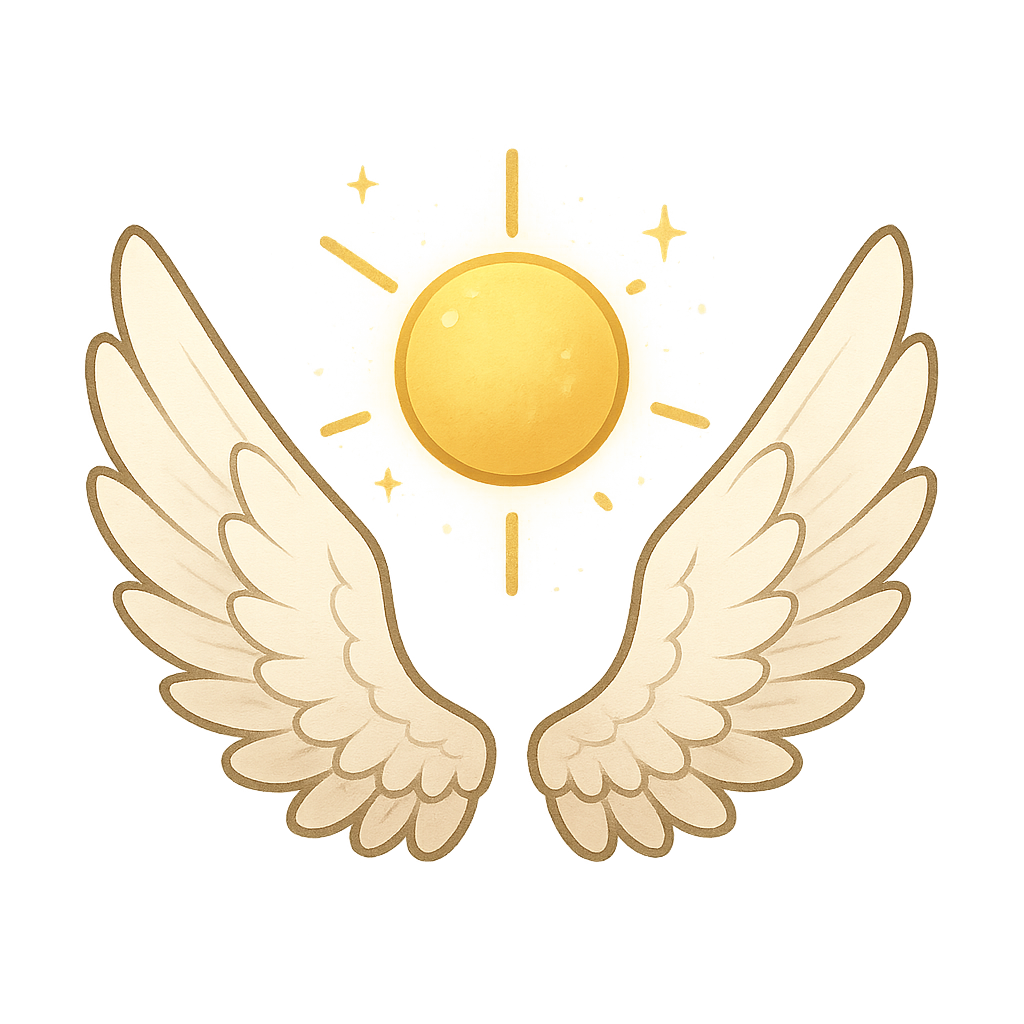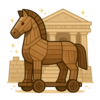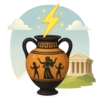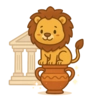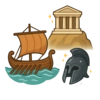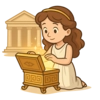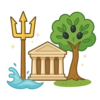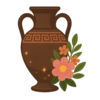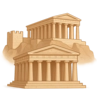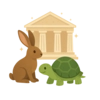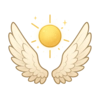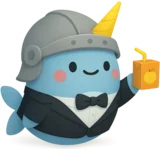The Boy Who Flew Too High
The salt-laced wind still whispers to me from my workshop high on the cliffs of Crete, carrying the scent of the sea that was both my prison and my inspiration. My name is Daedalus, and though many remember me as a great inventor, my heart remembers me as a father. My son, Icarus, grew up with the sound of the waves crashing below, a constant reminder of the world we couldn't reach, a world beyond the grasp of our jailer, King Minos. We were trapped, not by bars, but by an endless expanse of blue water. This is the story of how we tried to conquer that blue expanse—the myth of Icarus and Daedalus. I had built the king's great Labyrinth, a maze so clever that no one could escape it, but in doing so, I had trapped myself. Every day, I watched the gulls wheel and soar on the wind, their freedom a beautiful mockery of my own captivity. It was then, watching those birds, that a dangerous, brilliant idea began to form in my mind: if we could not escape by land or sea, we would escape by air.
My workshop became a place of secret, frantic creation. I sent Icarus out to gather feathers along the shore, every kind he could find—from the smallest sparrow to the largest gull. He thought it was a game at first, laughing as he chased the birds and returned with his hands full of downy treasures. I laid them out in careful rows, from shortest to longest, like the reeds of a panpipe, and began the slow work of binding them together with linen thread at their base. The next part was crucial: beeswax. I warmed it over a small flame until it was soft and pliable, then carefully molded it to secure the feathers, creating a gentle, strong curve. Icarus would sit beside me, his eyes wide with wonder, occasionally poking the wax and leaving a small thumbprint I would have to smooth over. Two pairs of wings I crafted, one large and sturdy for myself, and a smaller, lighter pair for him. When they were finished, they were magnificent—more than just feathers and wax, they were wings of hope, a tangible promise of freedom. I tested them, strapping them to my arms and flapping them gently, feeling the air catch and lift me. It was a feeling of pure magic, and I saw the same awe reflected in my son's eyes.
The day we chose for our escape dawned clear and bright, with a steady wind blowing north toward our homeland. My hands trembled as I fitted the wings to Icarus's shoulders. I looked him in the eye, my voice more serious than he had ever heard it. 'Listen to me, my son,' I said, 'This is not a game. You must fly the middle path. Do not fly too low, for the sea's dampness will weigh down your wings. And do not fly too high, for the sun's heat will melt the wax that holds them together. Follow me closely, and do not stray.' He nodded, but his eyes were already on the sky, sparkling with excitement. We leaped from the cliff's edge together. The initial fall was terrifying, but then the wind caught our wings, and we were soaring. The feeling was beyond words—we were birds, we were gods, we were free. Below us, fishermen and shepherds stared up in disbelief, thinking they were seeing gods from Olympus. Icarus laughed, a sound of pure joy carried on the wind. But that joy was his undoing. Forgetting my warning in the thrill of flight, he began to climb, reaching for the sun with a fearless heart. I cried out to him, but my voice was lost in the wind. He flew higher, and higher still, a tiny speck against the brilliant sun. I watched in horror as the wax on his wings began to soften and glisten. One by one, the feathers peeled away, fluttering uselessly into the void. He flapped his bare arms, his flight turning into a desperate fall. His final cry was of my name, a sound that pierced my heart before he vanished into the waves below.
A lesson Carried on the Wind
I could not follow him. I could only fly on, my own wings heavy with grief, until I landed on a nearby island, which I named Icaria in his memory. My great invention had given us a moment of impossible freedom, but it had ended in the deepest sorrow. For generations, people have told our story. Some see it as a warning about the dangers of 'hubris'—of reaching too far, of letting ambition blind you to wisdom. They say Icarus fell because he didn't listen to his father. And that is true. But our story is also one of human ingenuity, of daring to dream of the impossible. It speaks to the part of every person that looks at the birds and wishes to fly. Long after my time, inventors like Leonardo da Vinci would sketch their own flying machines, inspired by the same dream. Artists would paint my son's beautiful, tragic fall, capturing both the warning and the wonder. The myth of Icarus and Daedalus lives on not just as a lesson, but as a timeless story about the soaring heights of human imagination and the painful cost of flying too close to the sun. It reminds us to balance our biggest dreams with wisdom, and to never forget the bonds that keep us grounded.
Activities
Take a Quiz
Test what you learned with a fun quiz!
Get creative with colors!
Print a coloring book page of this topic.

